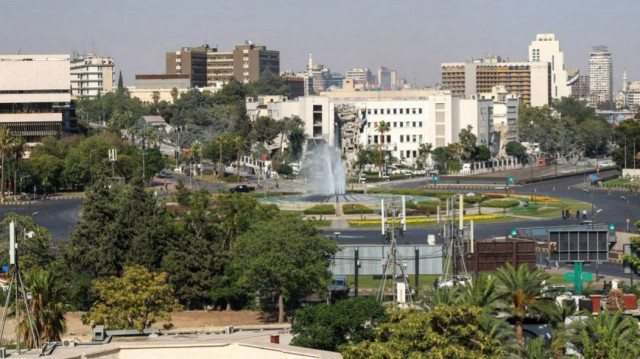
Ankara's diplomatic and intelligence efforts were key to securing ceasefire in Syria's Suwayda province, say security sources
Türkiye played a pivotal role this week in mediating a ceasefire in Syria's Suwayda province, where tensions flared between Bedouin Arabs and Druze communities before intensifying into armed clashes between Druze groups and forces aligned with the Damascus government, according to Turkish security sources.
Security sources underlined on Thursday that “field-level engagements led by Turkish Foreign Minister Fidan and National Intelligence Organization (MIT) chief Ibrahim Kalin were instrumental in achieving the ceasefire."
"Türkiye has made all efforts to eliminate risks threatening the territorial integrity, unity, stability, and security of its southern neighbor Syria, and succeeded in facilitating a truce between the warring sides," a source added.
The source also said that Türkiye demonstrated a firm stance throughout the two-day conflict, siding with Damascus and making every effort to restore calm between the parties, ultimately playing a pivotal role in achieving the ceasefire.
It added that Kalin held multiple talks with counterparts in the US, Syria, and Israel regarding developments in the region.
Kalin also discussed the Suwayda clashes and Israeli attacks on Syria with Syrian President Ahmed al-Sharaa, while maintaining regular contact with US Ambassador to Türkiye Tom Barrack, who also serves as US special envoy for Syria.
The MIT also consulted with prominent Lebanese Druze leader and former Progressive Socialist Party head Walid Jumblatt as part of efforts to end the fighting in Suwayda and restore stability to the region.
Fidan likewise had phone calls with Barrack, Syrian Foreign Minister Asaad Hassan al-Shaibani, Saudi Foreign Minister Prince Faisal bin Farhan, and Jordanian Foreign Minister Ayman Safadi.
Both Fidan and Kalin were reported to have kept Turkish President Recep Tayyip Erdogan closely informed of all developments and diplomatic contacts.
The sources also highlighted that Sharaa also acknowledged Türkiye's role, stating that without the effective intervention of American, Arab, and Turkish mediators, the region would have faced an unpredictable and potentially dire outcome.







